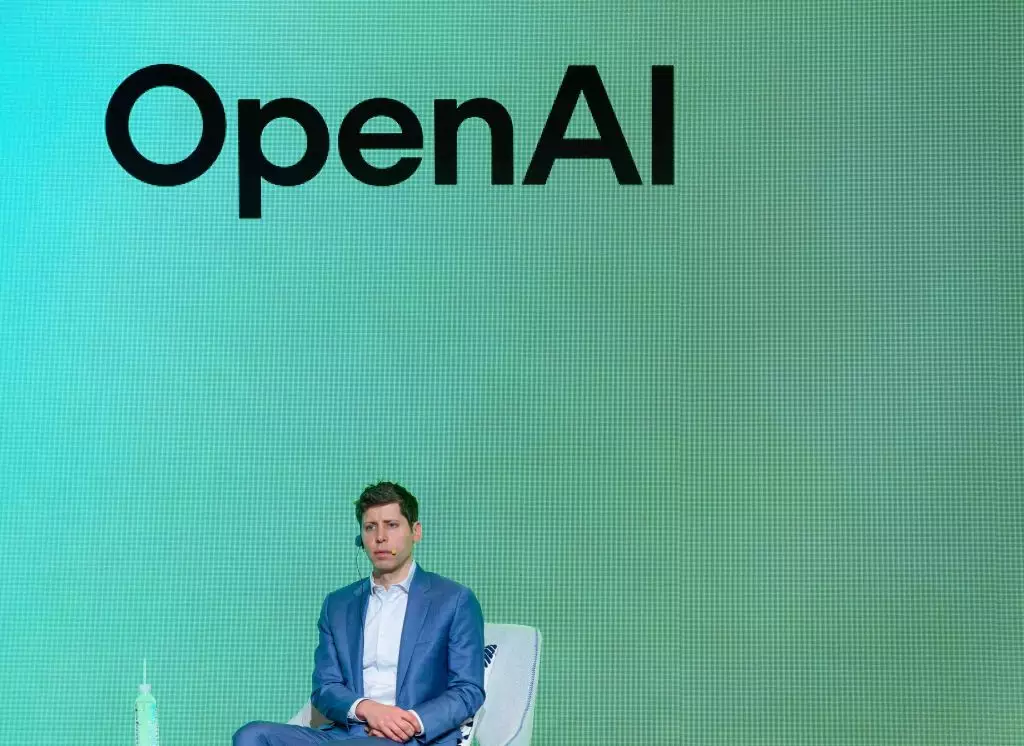The ongoing legal confrontation between OpenAI and its co-founder, Elon Musk, illustrates a profound and troubling rift that extends beyond corporate disputes and personal grievances. At its core, this battle raises fundamental questions about the nature of artificial intelligence development and the ethical obligations of its creators. OpenAI, which was initially founded in 2015 as a nonprofit organization aimed at ensuring that AI technologies benefit humanity, now finds itself embroiled in a contentious lawsuit initiated by Musk, who is accusing the organization of abandoning its altruistic origins. This conflict has transformed Musk—from ally to adversary—in a narrative that has captured public interest and ignited debates within the tech community.
Musk’s Campaign: Good Intentions or Personal Gain?
Musk’s portrayal of himself as a guardian of AI’s original mission complicates the narrative. Critics question his motives, suggesting that his fervent prosecution against OpenAI is more about personal ambition than genuine concern for the technological landscape. The recent accusations from OpenAI’s attorneys characterize Musk’s actions as strategic maneuvers designed to undermine a competitor—a tactic viewed by some as a blatant attempt to consolidate control over emerging AI technologies for his own gain. The dichotomy of Musk as the “good cop” advocating for a charitable mission versus OpenAI as a greedy institution looking to profit is increasingly being scrutinized.
As the case unfolds, it reveals Musk’s paradoxical relationship with AI. He famously established OpenAI with a vision to create a positive impact on society but has since launched accusations that the organization is deviating from its noble path. However, by taking legal action to prevent OpenAI from its transition to a for-profit structure—or more accurately, a capped-profit model—Musk risks appearing as an obstructionist, ignoring the realities of funding and growth that many tech ventures encounter. Ironically, by waging this legal battle, he may be endangering the very mission he claims to protect.
The Strategic Moves in a High-Stakes Game
The challenges facing OpenAI are becoming increasingly evident, particularly as it prepares for a pivotal courtroom showdown in 2026. The stakes are exceptionally high: OpenAI must successfully complete its metamorphosis into a public benefit corporation to secure the funds it needs for ongoing innovation and development. Yet, with critics—including nonprofit organizations and labor groups—calling for accountability, the situation becomes a chess game where each move is fraught with potential consequences.
Importantly, these opposing perspectives highlight the struggle between idealism and pragmatism inherent in Silicon Valley’s evolving landscape. For OpenAI’s leadership, the transition is underscored by a commitment to sustaining its charitable initiatives in a world where funding plays a critical role in technological advancement. Despite public pushes against their evolution, they assert that their restructured framework will ultimately enhance their ability to contribute positively to sectors like healthcare and education.
The Broader Implications of the Conflict
What this conflict starkly illustrates is a fundamental tension within the tech industry: the balance between profit motive and the public good. As stakeholders increasingly clash over the philosophical underpinnings of AI’s development, it calls into question whether unfettered advancement is in society’s best interest. The legal battle also highlights the inherent contradictions within the growth of AI itself, where the promise of technology as a driver for societal betterment often collides with the realities of corporate mechanisms that demand profitability.
Equally concerning is the possibility that this feud could lead to broader regulatory scrutiny of AI’s future. If influential figures like Musk apply pressure against an organization attempting to adapt to market realities while ostensibly maintaining its original ethos, the resulting discourse may lead to crippling regulations that stifle innovation. In this landscape, clarity is essential: how can organizations like OpenAI maintain their mission to serve humanity while also navigating the demands and pressures of a profit-centered framework?
The unfolding drama serves as a potent reminder of the questions we must confront about the role of large tech companies in shaping our collective future. Are their endeavors truly aligned with the greater good, or are we witnessing the emergence of crass self-interest cloaked in righteous indignation? As events evolve, the tech community and the broader public await the answers, all while understanding that the trajectory of AI development hangs precariously in the balance.

